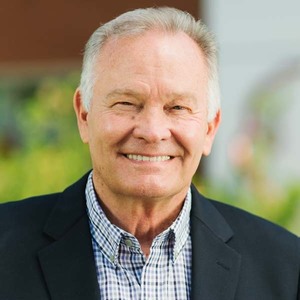The Mountain Democrat in the California gold mining town of Placerville once printed an advertisement for the 'Hope and Neptune' restaurant: "We have secured the services of an excellent cook, and can promise all who patronize us that they can always get a hearty welcome and a square meal” (November 8, 1856). An early American expression, “square meal” signifies a satisfying and filling repast. As servants of Christ, in our teaching and/or preaching, we are all cooks. Are we excellent? Would we be hired at the Hope and Neptune?
We are all shepherds, and implicit in that calling is the responsibility of feeding the flock. In places where the KJV uses the term 'feed', the NASB and the NIV choose the word “shepherd.” The task of feeding and sustaining the flock with food and water is most often identified in the biblical sources as the primary task of the shepherd. The Old Testament word used most frequently (ra'ah) means to feed, pasture, tend or graze.
Jesus saw the crowds in Mark 6:34 as sheep having no shepherd. Being moved with compassion, He sought to alleviate that situation by feeding the people spiritually and physically. The shepherd they were in desperate need of was identified by the Greek word poimen, the same used by Christ in identifying Himself as the “Good Shepherd” in John 10.
When commissioning Peter, Jesus used two different terms as He challenged His disciples with the task of shepherding God's people (John 21:15-18). In verses 15 and 17 respectively, Christ used a verb form of bosko when He commanded "tend my lambs" and "tend my sheep." This word carries the narrower meaning of nourishment, while 'poimaino', used in verse 16 and translated 'shepherd' in the NASB, indicates a more general oversight of which feeding is a major component.
As understood by those in the days of Jesus' sojourn in the land, the shepherd was the one responsible to oversee the flock, particularly the feeding and nourishing of it. That Peter remembered his master's words is evident in his instructions to the elders of the church as he encouraged them to "shepherd the flock of God" (1 Peter 5:2). The Apostle Paul left the elders at Ephesus with a similar charge to "shepherd (poimaino) the church of God" (Acts 20:28). So then we who minister in his name have been given the charge to do the same today for the church "which He purchased with His own blood."
Of the many features associated with this aspect of pastoral ministry, it is helpful to remember:
Feeding the flock is hard work.
It is no secret that people in the United States eat out often. This routine is not followed because it can save a person money. Most people are simply not up to preparing a meal after a hard day at the office. The shepherd in Bible times did not have the option of ordering out for sheep food. He (or she as in the case of Jethro's daughters), had to labor diligently to secure enough food and water to sustain the flock. The Promised Land, though flowing with milk and honey, often presented a challenge to the shepherd. Changing weather and geographical obstacles, along with the frequent scarcity of water, made the job of filling those woolly bellies a formidable one.
Finding water was one of the most critical concerns of the shepherd. In Israel, even from the time of Abraham, there were five basic sources; rainwater, water holes, springs, wells and cisterns. With an annual rainfall of only 4-14 inches a year in the Judean hill country, where most of the sheep raising occurred, securing water for animals consisting of 70% water was a constant struggle. Careful shepherding required planning, portaging water from holes inaccessible to the sheep and a constant search for sufficient vegetation.
In this fast food age, it would seem appropriate for those of us tasked with shepherding that we accept the challenge that doing well at this calling will require hard work. If we have to struggle to secure it, we join those who went before.
It is important to feed the flock the right food.
In Psalm 23:2 David rejoiced in God's ability to lead him to green pastures. The Hebrew term for green is deshe and pictures new, young, tender vegetation. He went on to reflect on being led beside quiet waters, which pictures unpolluted sources that do not threaten the health of the sheep. Pastures and springs could be fouled by careless shepherds, threatening the welfare of the flocks. This was God's indictment against the leaders of Israel when He pronounced through Ezekiel, "Is it too slight a thing for you that you should feed in the good pasture, that you must tread down with your feet the rest of your pastures? Or that you should drink of the clear waters, that you must foul the rest with your feet? And as for My flock, they must eat what you tread down with your feet, and they must drink what you foul with your feet!" (34:18-19).
Inferior food and drink should never be on our people's menu. They need the right stuff from their shepherds in order to reach the goal the Apostle spoke of when he wrote to the Ephesian believers that pastors and teachers, among other leaders, were given to the church "for the equipping of the saints for the work of service, to the building up of the body of Christ; until we all attain to the unity of the faith, and of the knowledge of the Son of God, to a mature man, to the measure of the stature which belongs to the fullness of Christ" (4:12-13). Jesus made it clear to those of His day that the proper food and water consisted of Himself and His Word when He said "I am the bread of life; he who comes to Me shall not hunger, and he who believes in Me shall never thirst" (Jn. 6:35).
That which the Lord provides, the shepherd must serve. As we teach the scriptures, we teach Christ. As we draw on the Word of God, our souls and those of our sheep will never thirst. Even in a desert place, there we will find His provision more than adequate. This was brought to my attention vividly one day in 1994 as Rolane and I journeyed from Jericho to Bethel. Along the way, our bus pulled off the main road in the midst of the Judean desert. Following the dusty one-lane path for several hundred yards, the driver stopped in the middle of nowhere. Our guide got up and proclaimed "Everybody out! This is our lunch stop!" We carried our backpacks down a steep path for over a quarter of a mile through the nothingness.
Then, as we rounded a bend, our eyes fell on something marvelous. There in the middle of the desolate landscape was an oasis. We had arrived at the spring Fawaw. There was clear, clean water bubbling up from the spring, coursing along an aqueduct Herod the Great had built for his Jericho palace. The trees offered welcome shade, and all around was the testimony of ample grass – sheep droppings. Here, in the middle of nowhere, God had provided a place of good food, water and rest. I thought to myself, this is what I must provide as I tend the flock of God … His food and His water … nothing less will do.
A sermon or lesson is a meal – and just that. It is tempting to believe that our sermon, lesson, or seminar is some sort of award-worthy presentation that will be lauded by generations of believers to come. Something that will end up on a kind of ministerial equivalent of the Food Channel. Really? It's a meal – hopefully a "square meal" – by which our people are fed and satisfied with healthful and nutritious food from the Word of God.
Years ago I began to realize that my sermons were a meal – no more, no less. I didn't have to "hit it out of the park" every week. Do my best? Yes. Be faithful? Yes. Be a star? No. Just give our people a meal that is filling and nutritious. The kind of satisfaction that only the Word of God can provide.
Be faithful, dear brethren. Embrace your task as a cook. Serve your people a square meal.
 Biola University
Biola University


.jpg)
